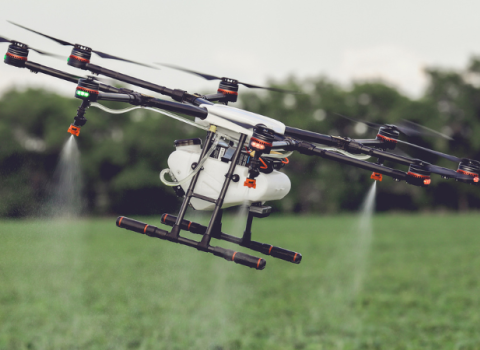The invention consists of an early diagnosis method for colorectal cancer (CRC) from blood samples.
Developed in the University of Bologna by a team from the Department of Experimental, Diagnostic and Specialty Medicine and led by Rossella Solmi, this patented invention aims to identify blood markers linked to the development of colorectal cancer (CRC). The analysis of these blood markers allows for an early diagnostic screening method that is practical and simple to perform, and highly sensitive and specific methods. In contrast to current diagnostic tools, this innovative method, based in the analysis of blood, is more effective, accurate and accepted by patients invited for testing.
Colorectal cancer is the third most common cancer in the world, with approximately 1.7 million new cases diagnosed in 2015 and 832 thousand deaths. Early diagnosis in early stages is essential to raise the probabilities of an effective and successful treatment.
The progression from premalignant lesions to carcinoma and metastasis is relatively slow, in some cases using up to 15 years to develop, creating a considerable window period for a timely diagnosis. Currently, most commonly used methods for diagnosis include fecal immunochemical tests for the detection of occult blood and a colonoscopy. The first test is characterized by the high occurrence of false positive results (the patient is positive for the test, but without the disease). The second test is more reliable, but it is highly invasive and often refused by the patient. Considering, the limitations of current diagnostic methods, there is a significant need for the development of new, more accurate and less invasive screening tests, including tests based on blood markers.
“The objective pursued by research centres all over the world”, as Rossella Solmi observes, “is to obtain the "liquid biopsy" which would allow for the identification of markers linked to the development of cancer from simply a small blood sample”
“If validated, our test will become an additional tool for the early detection of colorectal cancer, to be used alongside tests for occult blood in feces and colonoscopy. We hope” - concludes Solmi – “that our markers may one day become so effective and reliable as to compete with the tests for colonoscopy, without the inconvenience and discomfort associated with such tests”.
In support of developing research on these markers and reliability of the test, the University of Bologna has just recently launched a campaign to invite volunteers, including University staff, family and acquaintances, to undergo a blood sample test.
In addition, the Enzo Piccinini Foundation has launched a crowdfunding campaign on the Rete del Dono platform (https://goo.gl/m9FQYe) to fund a research grant dedicated to this promising topic. However, the process of validation and improvement will also need to include sampling on patients tested positive in fecal immunochemical test. With the aim of finding support to carry out these more advanced testing stages, the invention was presented in Munich at the 11th edition of BioVaria in April just last month. The international event brings together the best European scientists, technology transfer professionals, investors and representatives of the biopharmaceutical industry with the aim of discussing emerging trends in the Life Sciences industries and create new partnerships between academia and industry.
Participation in Biovaria has been sponsored and coordinated by NetVal, the official association of Italian Technology Transfer Offices, which aims to valorize and promote the transfer of university research to the private sector, entrepreneurial set-ups, venture capitalists, public bodies and institutions, and the financial sector.





 A unique international forum for public research organisations and companies to connect their external engagement with strategic interests around their R&D system.
A unique international forum for public research organisations and companies to connect their external engagement with strategic interests around their R&D system.